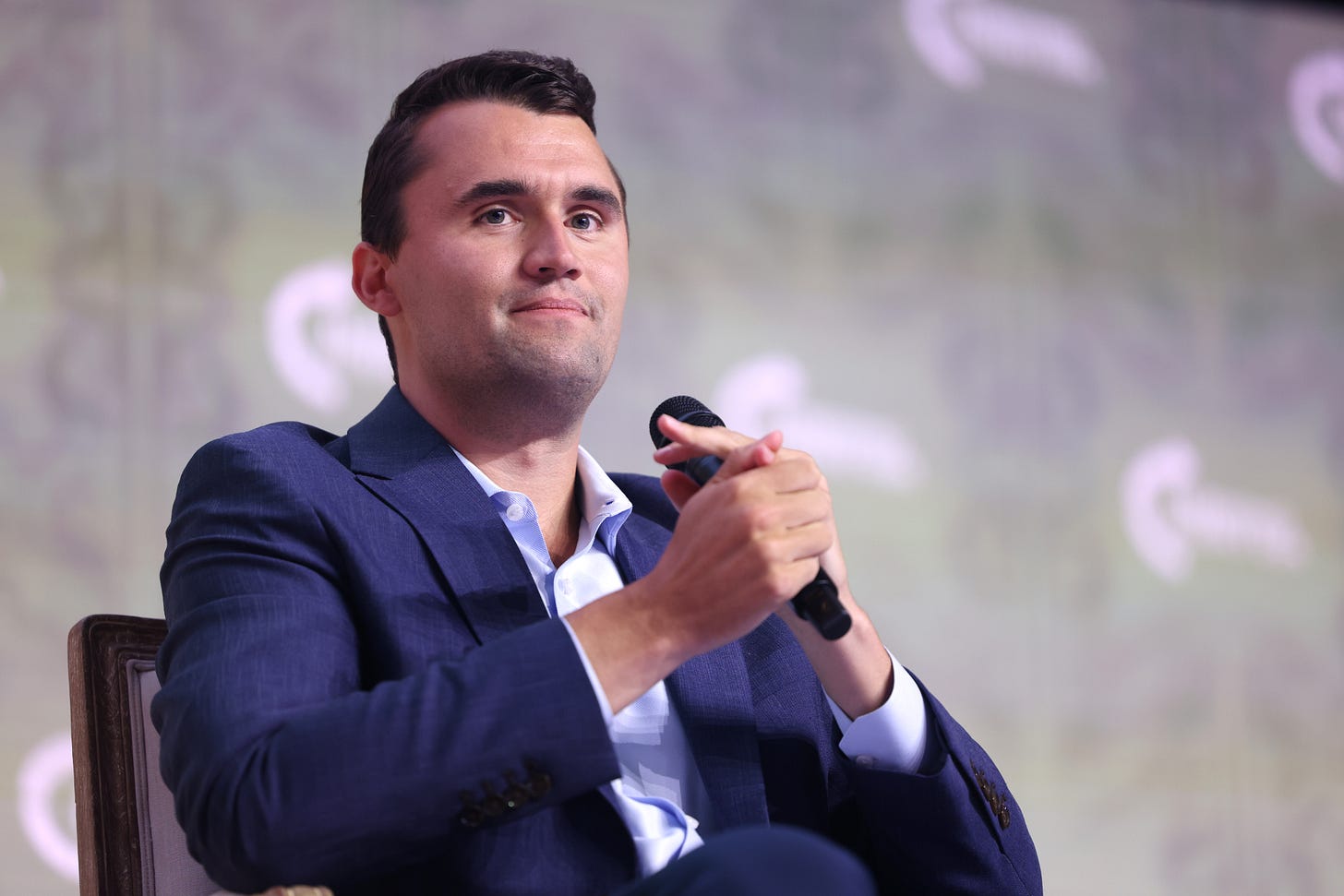
This week, I want to pause from the usual dissection of bureaucratic bluster and blunder to reflect upon the assassination of Charlie Kirk and the reverberations that have been occurring globally since that awful moment.
It’s one of those instances where you will always remember where you were when you found out. I was on a back road in northern Wisconsin when I got a call, and, a few minutes later, having pulled to the side in Land O’Lakes, my wife and I heard the news of his tragic passing.
There’s always the hollow feeling in your stomach, and the stabs of pain and breathlessness that such news sends through your system. A bit of surreal fogginess comes with it, the sense that surely this can’t be happening. In this case, too, as several days passed, there was also the sense that something even more significant than one man’s death had occurred, an unexpected turn, not just for his family and his movement but for the country as a whole.
The weeks that have followed have amplified that assessment. The assassination was immediately received and felt as something far more than could be contained within mere political jurisdiction. It was also more than just another act of senseless violence in an already dangerously polarized America.
It ran through and beyond the culture, even beyond specific religions. It ran like a current to the open waters of our very faith. It was a phenomenon of the soul, simply put, a kairos moment that most Americans and millions around the world felt and understood to have come upon us—an appointed time, heavy with sacred weight, when the mundane touches of daily life step back to allow eternity to press closer.
For reasons that no pundit, historian, or politician can fully explain, his death unleashed not only an outpouring of grief and anger but also a revival of hope, resistance, and inspiration that touched the hearts of millions around the world.
Or, to say it another way, there are political movements, spiritual movements, and cultural movements, and this was all that, but it was more. It was a monumental movement of forgiveness, that emotional sustenance that enriches the inner vaults of our humanity but simultaneously bankrupts and empties the accounts of those filled with hate and evil. The energy of it all was amorphous, galloping into churches and schools and workplaces, suddenly free and liberated from normal narrative manacles, and yet it was never out of control.
At Kirk’s memorial, it was best captured not by politicians or activists, but by Erika Kirk herself, who stood before the world and bore witness to mercy. She did not speak of politics or rivals but of revival—of people who had not prayed in years suddenly reading the Bible, of people going to church for the first time in their lives.
Erika Kirk captured this unique moment in our time best of all:
But most of all, God’s mercy and God’s love have been revealed to me these past 10 days. After Charlie’s assassination, we didn’t see violence. We didn’t see rioting. We didn’t see revolution. Instead, we saw what my husband always prayed he would see in this country.
She spoke about young men, in particular:
Charlie wanted to help them. He wanted them to have a home with Turning Point USA. When he went onto campus, he was looking to show them a better path—a better life that was right there for the taking. My husband, Charlie, he wanted to save young men just like the one who took his life. That young man. That young man. On the cross, our Savior said: ‘Father, forgive them, for they know not what they do.’ That man—that young man—I forgive him.
And with those words, a movement that I believe will likely be far more powerful than any of the past century was cemented, the strength and extent of which we have not yet even begun to comprehend. To consider such a movement as merely political is to trivialize it. To see it only as a tragedy is to trivialize the death of the man who built it. History shows that death, when mourned at the altar of sacrifice, can seed movements and great awakenings. It can birth—or at least rebirth—a great nation.
The Kirk assassination belongs in that long line of events that challenge the human spirit.
In an age when a culture of assassination is given the license of legitimacy, and politics runs on the social media narcotic of violence and the celebration of violence, the act of forgiveness stuns like a sudden clap of thunder or the solid strike of lightning against a black sky. It sends the creatures of darkness running for cover. It creates light and space for something altogether new.
Forgiveness is not weakness, Erika Kirk reminded us. It is the deepest power of the Christian faith. And it is not merely personally transformative, but culturally and politically so: It reminds us that communities and nations are populated by living human beings, all of us flawed, all of us vulnerable to occupation by evil, but also resilient and courageous enough to ward it off.
When Erika forgave, she was not letting evil off the hook; she was telling the world that evil must not have the last word, or commit the last act.
This moment may prove to be the seed of such revival, not just for Christians and Christianity, but for those of many faiths who yearn for a day when spiritual values reign supreme once more. Forgiveness may extend mercy to those who commit evil acts, it may call up courage in the most fearful of times, but it can also blow a kiss to a broken heart.
Why the Left’s Violence Fails …

